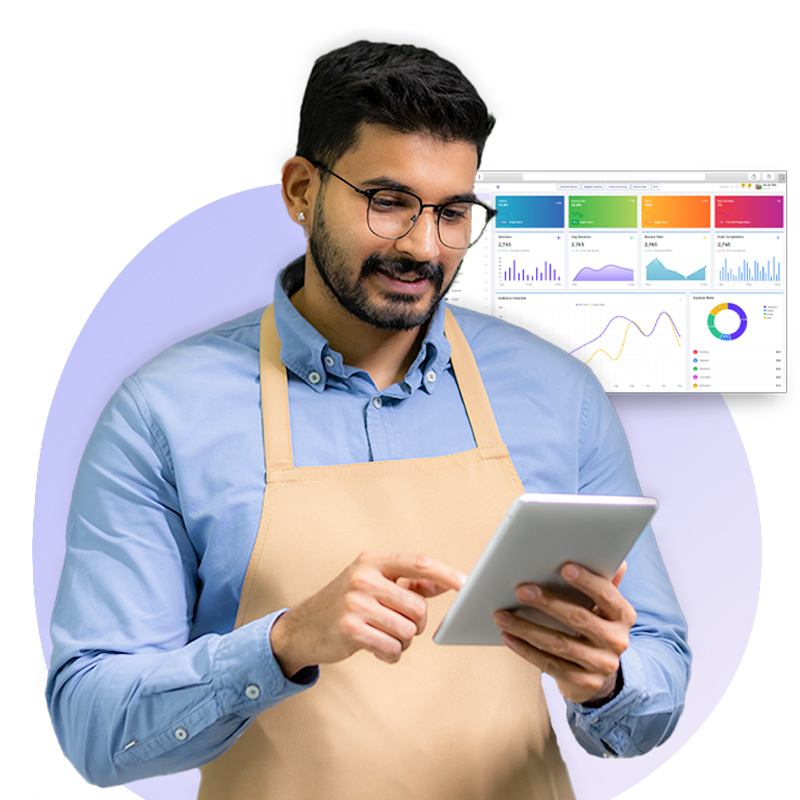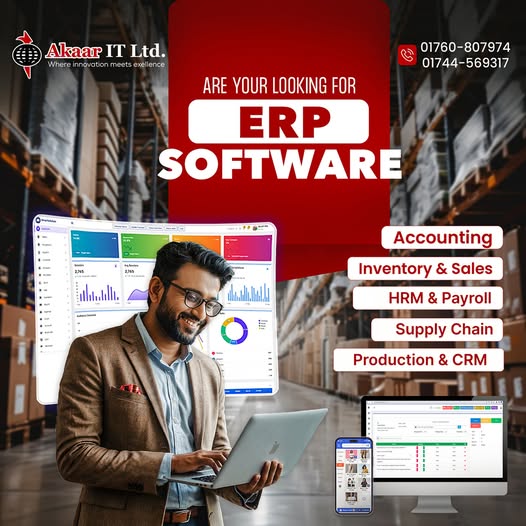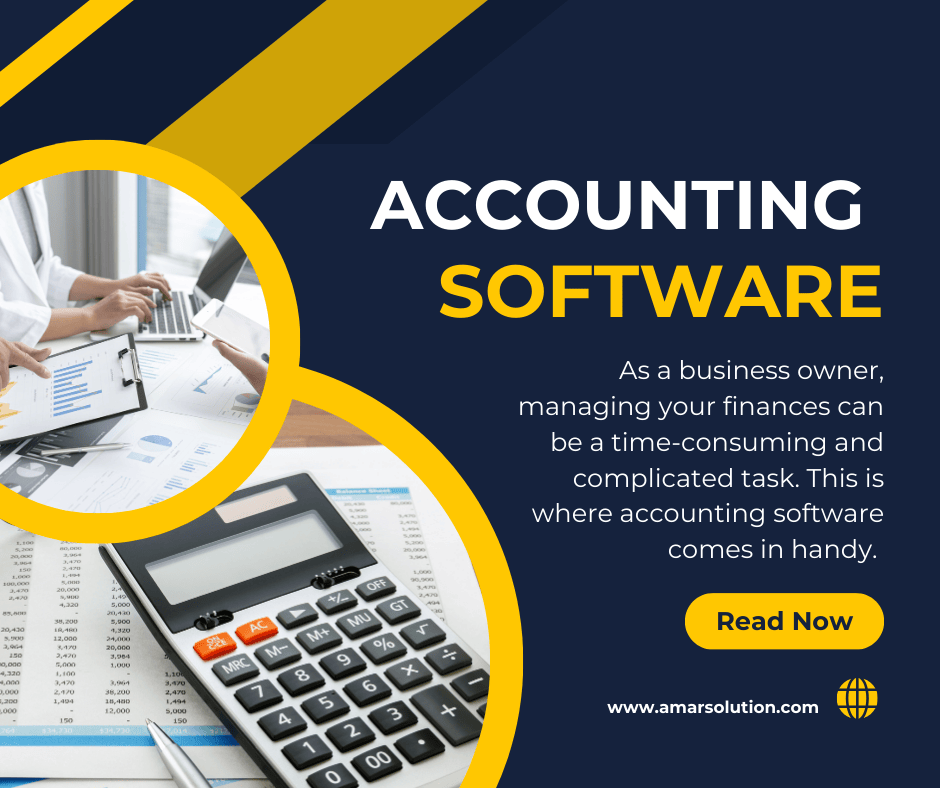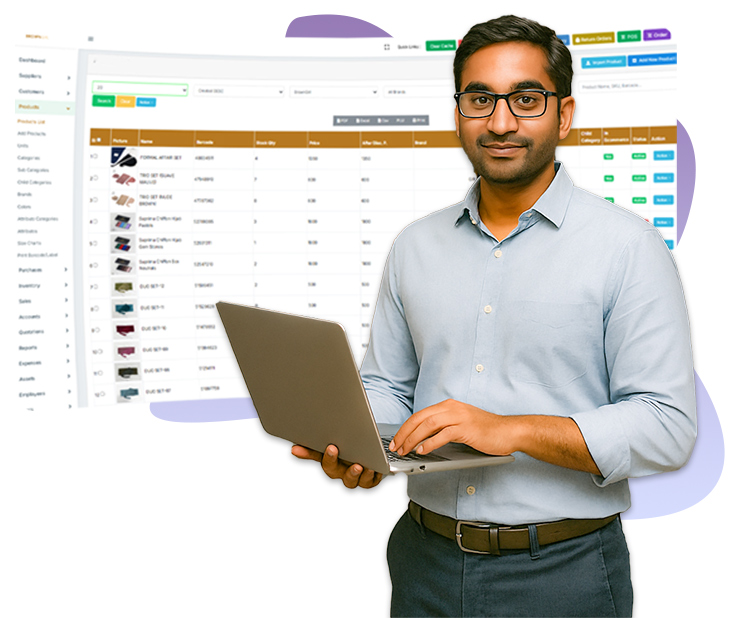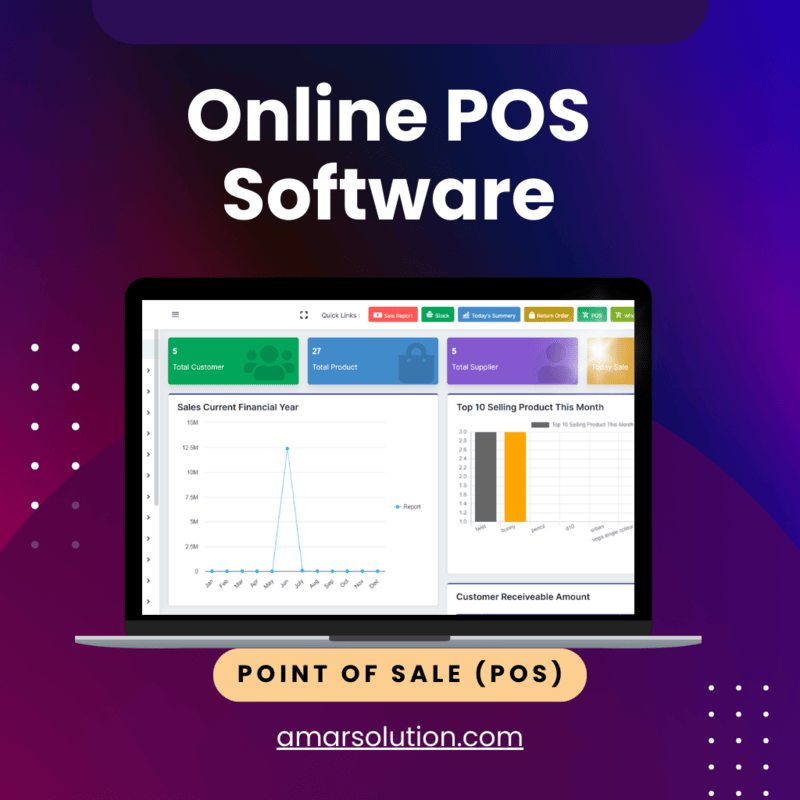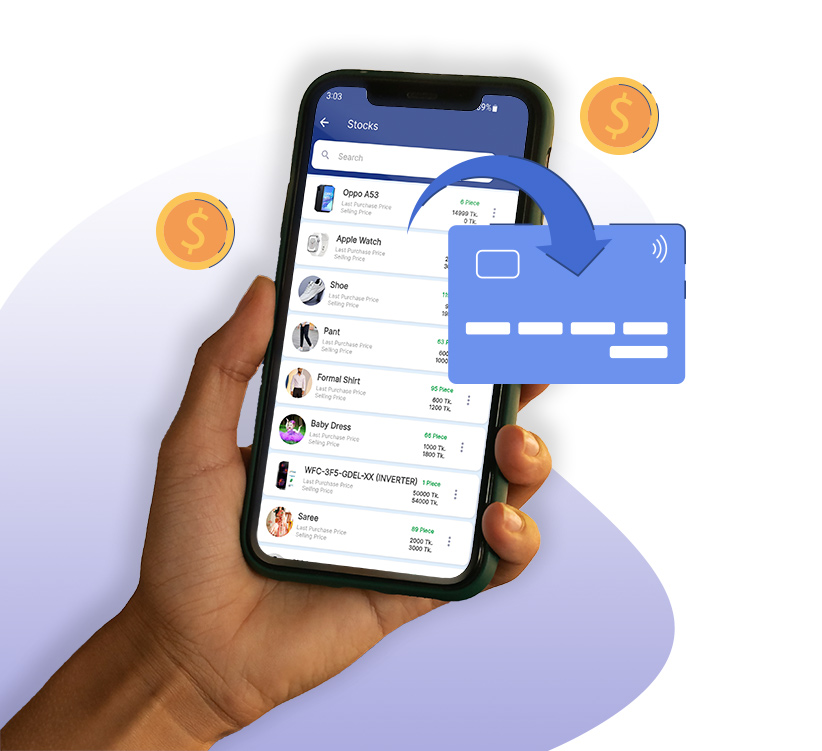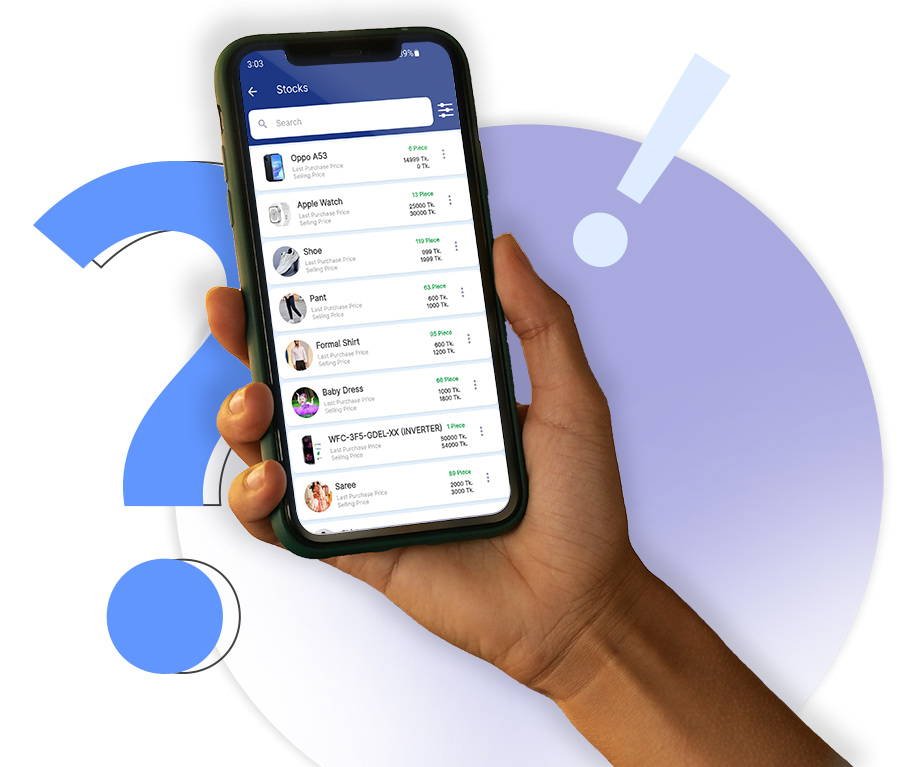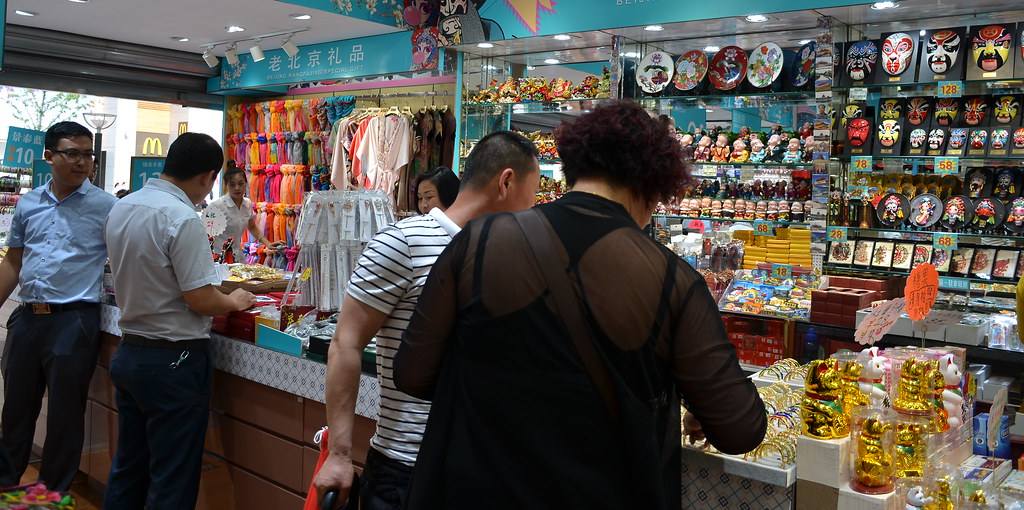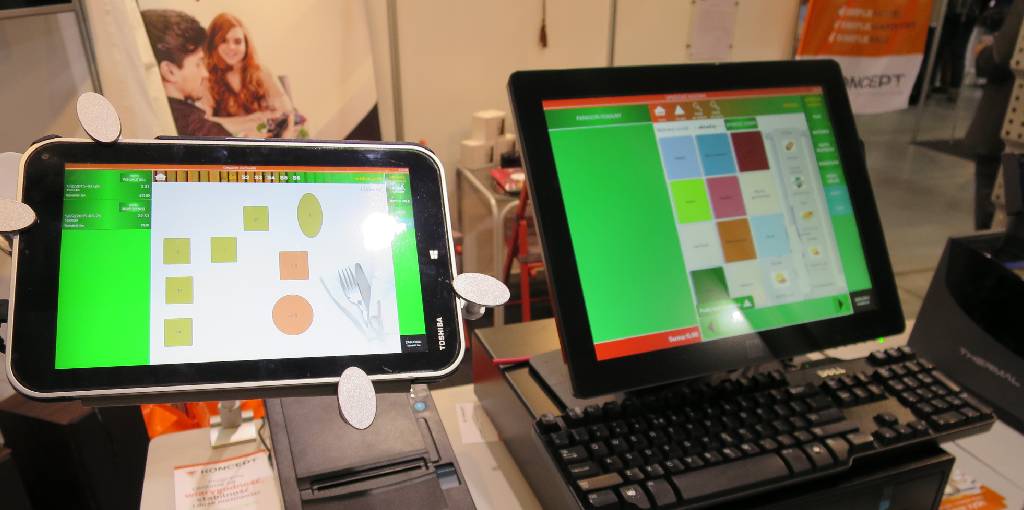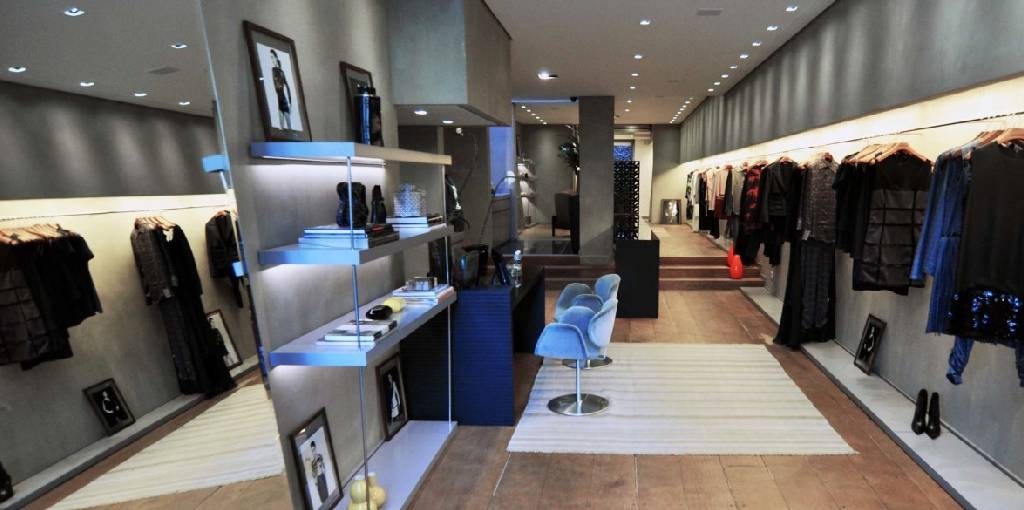What is a Point of Sale System and Why Do You Need One

What a Point of Sale (POS) System is and Why Your Business Needs One
Introduction
In today’s competitive and rapidly changing business environment, efficiency, precision, and customer satisfaction are essential. If you are running a retail shop, restaurant, café, saloon, etc., then keeping sales and inventory records is a must for you. This is where a POS solution comes in handy.
Not to mention a POS system does so much more than ring up sales. It's an all-in-one digital tool that combines software and hardware to support businesses in handling sales, inventory, customer data, and analytics. We will discuss here, in this blog of ours, what a POS system is, what it means, its features, benefits, etc., and why each and every business — like in Bangladesh — needs to have it for sustainable and effective growth.
What is a POS system?
Point of Sale (POS) System is the location and device at which a customer checks out. In the past, a POS was just a cash register that tracked sales. Admittedly, however, modern POS systems are sophisticated digital devices that integrate many different parts to make running a business easier.
Key Elements of a POS System
- Billing Software: At the core of a POS system is the billing software, designed to generate invoices and manage payments quickly and accurately. It reduces human error and speeds up the checkout process.
- Barcode Scanner: Barcode values are automatically read from barcode labels, and the products are automatically identified. This eliminates manual keying, accelerates billing, and contributes to precise inventory management.
- Receipt Printer: This tool instantly prints a customer receipt, giving evidence of purchase and creating customer confidence.
- Card Reader/Mobile Payment Integration: Today’s POS systems accommodate a variety of payment types, such as credit/debit cards, mobile wallets (such as bKash in Bangladesh), and QR code payments, to serve different customer preferences.
- Inventory & Stock Management: The stock levels are automatically updated in the system each time a sale or return is made, so you can avoid stock outages or overstocking. Better procurement planning is achieved by tracking inventory in real time.
Sales Reporting Dashboard: POS systems come with extensive dashboards and reporting for sales trend analysis, peak hours, bestselling items, and employee performance. These are the factors that would be necessary to make strategic decisions.
Why You Need a POS System for Your Business
Quicker and More Precise Transaction:
Manual checkout is a recipe for human error, which slows the checkout process and upsets customers. The POS software takes care of billing, ensuring that the invoice is accurate and the payment is processed fast! This decreases lines and makes for a better shopping experience.
Effective Inventory Management:
Managing stock by hand is both time-consuming and risk-laden. A POS system also replenishes your inventory in real-time, meaning that you can see stock levels instantaneously as sales are made. It will notify you when they are running out, minimizing lost sales from stockouts.
Detailed Sales Analytics:
Point-of-sale systems produce comprehensive sales reports that tell you what products are selling best, seasonal patterns, and customer purchasing habits. These business insights allow you to take data-driven decisions about ordering products, pricing, and promotions.
Multiple Payment Options
In the era of digital payments, customers demand flexibility. POS systems also come equipped with card readers and mobile payment gateways to streamline transactions for customers who do not carry cash.
Improved Customer Experience
Quicker checkouts, no problems with billing, and various payment methods would make shopping more pleasant. Many POS systems also store customer purchase histories, offering the ability to provide personalized promotions and loyalty programs.
Regulatory compliance and compliance management and managing the indirect tax liabilities of the business.
Some POS systems are built to calculate taxes as per the local laws in Bangladesh automatically. This reduces the risks of compliance and facilitates the accounting process.
Several Kinds of POS Systems
There are a few different types of POS systems, depending on the size and needs of your business:
Traditional POS Systems: There are local systems (both software and hardware) that you install in your own location in your shop. Although they are high-performing, they often have greater upfront costs and long-term maintenance.
Cloud-Based POS Systems: Cloud POS solutions save data online, and they can be accessed from anywhere where there is an internet connection. These are scalable and affordable and frequently provide auto-updates. They are ideal for multi-site businesses and mobile sales locations.
Mobile POS Systems: By taking smartphones or tablets with you, mobile App systems allow you to ring up sales anywhere in your store—or, in the case of some systems, even offsite. This versatility is perfect for cafes, food trucks, or pop-up shops.
The Advantages of POS Systems for Various Categories of Businesses
Retail Stores
Hundreds or thousands of products may seem daunting to organize for a retail store. A POS system automates the price scanning, billing, and updating of the inventory, which in turn enhances the time taken for checkout and the accuracy of stock. It is also useful for loyalty programs and targeted advertising.
Restaurants and Cafes
POS systems can help restaurants track table activity, control orders, split bills, and integrate with kitchen display systems. This translates into more dynamic workings and quicker customer service.
Service Businesses
Service-oriented businesses such as salons and repair shops use these systems to schedule appointments, maintain customer history, and facilitate the sale of products or services.
How to Select the Best POS System for Your Business
Here’s what to look for in a POS system:
Type of Business and Volume: Select a solution that is well-suited to your type of business and sales volume.
User Friendliness: The system should be easy for your team to pick up so that you don’t have to spend a lot of time on training.
Payment Methods: Make sure it supports the local payment options that are popular in Bangladesh.
Inventory Functionality: Seek out the ability to track inventory in real time and receive automatic notifications.
Customer Support: The device can throw up problems from time to time, and good vendor support will literally be your lifeline during troubleshooting.
Pricing: Compare upfront costs, monthly fees, and transaction charges.
Integration: Determine if the POS integrates with your current accounting or ERP systems.
How to Successfully Implement a POS System
Train Your Staff: Get the most out of your PDF before you even upload it to an LMS, and make the user experience smooth and seamless.
Feature Customization: Customize the system to your unique business processes.
Back up your data: Always back up data on sales and inventory to avoid any loss.
Track Performance: Leverage reports to build and grow your business.
Update Software Regularly: Make sure to keep your POS software updated regularly for security and new functionalities.
Conclusion
A POS system is no longer an accessory you might have at your restaurant—it’s a must-have if you want to see your business flourish in the competitive economy. By enabling the automation of billing processes, inventory management, sales tracking, and customer involvement, a point-of-sale system allows businesses to run as smoothly as possible, delivering good customer service experiences.
Modern POS system for business in Bangladesh Modern POS system for business in Bangladesh POS, or point of sale, will shape the future of retail business in Bangladesh in the coming years as the demand for digital payments increases along with the need for better inventory management and data-backed operational decisions. It’s fairly obvious that the investment in the correct POS technology can save your business time and money and keep you one step ahead of the competition.
FAQs
A1: Can I use a POS system on my phone?
Q1: Can I Use Mobile POS on Smartphones or Tablets? A1: Yes, you can make sales with smartphones and tablets.
Q2: Do any POS systems in Bangladesh accept mobile payments (like bKash)?
A2: Most of the POS systems in Bangladesh support mobile payment gateways like bKash, Nagad, and Rocket.
Q3: Are POS systems costly to use?
A3: Prices will depend on capabilities and size, but there are cost-effective subscription-based cloud POS's designed for small businesses.
Q4: Is it possible to connect POS with accounting software?
A4: Integrate Some POS systems can integrate with accounting or ERP systems to simplify cash flow control.

